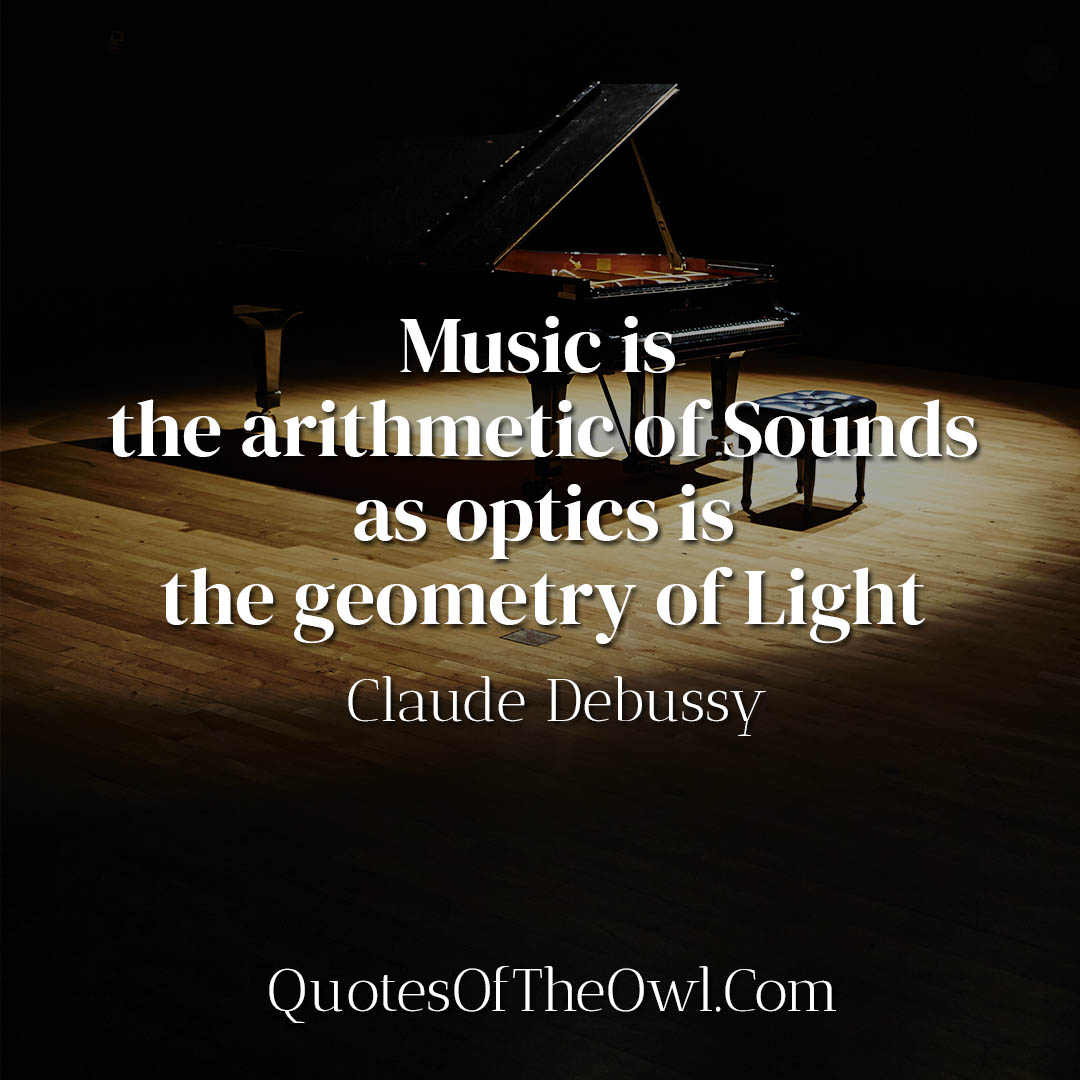What is the meaning behind Claude Debussy’s Quote: “Music is the arithmetic of sounds as optics is the geometry of light”
Claude Debussy, a renowned French composer and one of the most influential figures in the world of classical music, left behind not only a rich legacy of compositions but also thought-provoking quotes that continue to intrigue and inspire. Among these quotes, one stands out: “Music is the arithmetic of sounds as optics is the geometry of light.” This captivating statement offers a glimpse into Debussy’s unique perspective on the nature of music and its relationship with optics, inviting us to explore its profound meaning and implications.
The Intersection of Music and Optics
Music: A Mathematical Symphony
At first glance, Debussy’s comparison of music to arithmetic might seem curious. However, this analogy underscores the inherent mathematical underpinnings of music. Just as arithmetic operates through precise numerical relationships, music relies on intricate patterns of notes, intervals, and rhythms that create harmonious compositions. In this context, music becomes a language of its own, where each note contributes to a larger mathematical framework, resulting in the emotive symphonies that resonate with our souls.
Optics: The Geometry of Light
Debussy’s reference to optics as the geometry of light sheds light on the visual counterpart of his analogy. Optics, the study of light and its behavior, involves the precise manipulation of angles, reflections, and refractions to form images. Similarly, in music, the arrangement of notes, chords, and melodies generates a vivid sonic landscape, evoking emotions and images within the listener’s mind. Just as optics governs the way we perceive and interpret light, music governs the way we perceive and experience sound.
Debussy’s Philosophical Insights
Sensory Perception and Emotion
Debussy’s analogy between music and optics delves deeper into the realm of human perception and emotion. Just as light can be refracted and reflected to create diverse visual effects, music has the power to evoke a wide range of emotions based on its composition and performance. The analogy invites us to consider how our senses collaborate to shape our understanding and emotional response to the world around us.
The Fusion of Art and Science
Debussy’s quote also highlights the intersection of art and science—a theme that was central to his musical innovations. He suggests that, like optics, music is not merely an art form but a discipline that involves intricate technical aspects. Just as optics combines artistic design with scientific principles to create visual beauty, music merges creativity with the precision of musical theory to craft auditory beauty that resonates across cultures and generations.
Exploring Debussy’s Musical Legacy
Impressionism in Music
Debussy’s music is often associated with the Impressionist movement, a style that emphasizes sensory experiences and captures fleeting moments. Much like an impressionist painting, his compositions use a palette of sounds to evoke moods and atmospheres, transcending traditional musical structures. This approach aligns with Debussy’s analogy, as both impressionist art and his music seek to convey complex sensations through carefully crafted elements.
Breaking Traditional Boundaries
Debussy’s revolutionary approach to composition challenged the conventions of his time. He explored new scales, harmonies, and tonalities that expanded the possibilities of music. By doing so, he pushed the boundaries of musical language, akin to how optics continually evolves with advancements in technology. Just as optics shapes our understanding of light, Debussy’s innovative compositions reshape our understanding of music’s potential.
Discover the musical wisdom of Claude Debussy – Explore his insightful quotes today!
Conclusion
In Claude Debussy’s thought-provoking quote, “Music is the arithmetic of sounds as optics is the geometry of light,” we find a profound insight into the interplay between music and optics. This analogy invites us to contemplate the mathematical and artistic aspects of music, its capacity to evoke emotions, and its parallels with the manipulation of light in optics. Debussy’s legacy as a musical innovator and visionary is beautifully encapsulated in this analogy, reminding us of the intricate connections between seemingly disparate disciplines.
Recommended Audio CD: Debussy – The Complete Works

